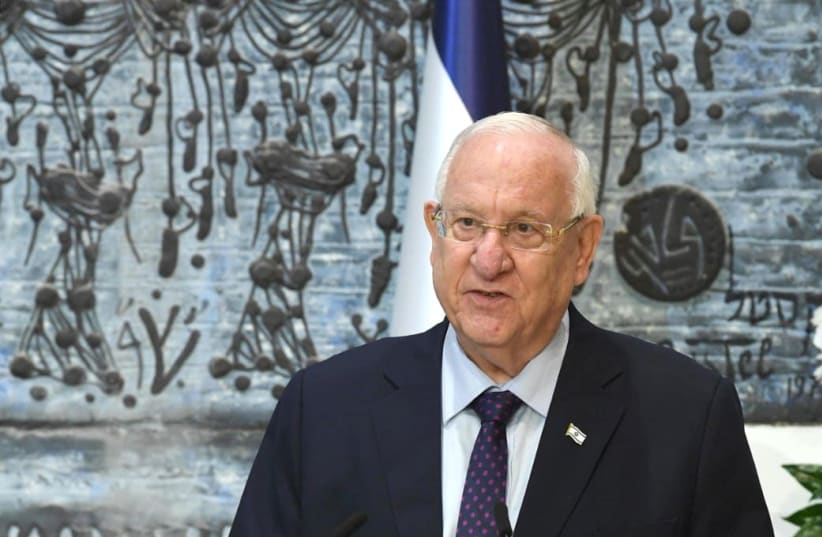Speaking for the last time as president at the annual Jerusalem Conference hosted by the Besheva media group, Rivlin was mindful that Israelis will next week go to the polls for the fourth time in under two years. He predicted that they would not be celebrating Election Day as the citizens’ day of democracy, but would go reluctantly because this fourth election is a sign of the crisis in which Israel’s democracy finds itself.
Rivlin spoke at the Jerusalem International Convention Center.
At the start of the coronavirus crisis, the elected representatives of the people asked the public to join a national effort to stop the spread of the virus, “but they themselves failed in the central mission to guarantee political stability in this war against a virus that has no limits,” he said.
In contrast, Israeli society has demonstrated daily that it is capable of forming new alliances and working together, he added.
Rivlin was highly critical of the absence of a budget, saying this caused irreparable harm to the country and its people.
Such a situation is detrimental to health, welfare, education and more, he said, adding that it erodes public confidence in national institutions, the Knesset, the government and the various political parties.
Rivlin cited the ability of different sectors of the public to serve together in civilian national service, including Arabs and secular, religious and haredi (ultra-Orthodox) Jews. He lamented that this is not emulated in the Knesset or the government.
“We cannot allow politics to remain a zero-sum game,” he said. “All-or-nothing politics are destructive. No one knows what the results will be, but one thing must be clear: We must return to politics of compromise, characterized by statesmanship and partnership, respecting the people as a whole.”
Rivlin, who twice served as Knesset speaker, from 2003-2006 and 2009-2013, and as communications minister, understands the workings of the Knesset and the government and believes Israel can do better in both.
Unless he decides to hold meetings during the intermediate days of Passover with representatives of the various parties elected to the Knesset, Rivlin will meet with them in the first week of April to hear their recommendations before deciding on whom to confer the task of forming a government.
